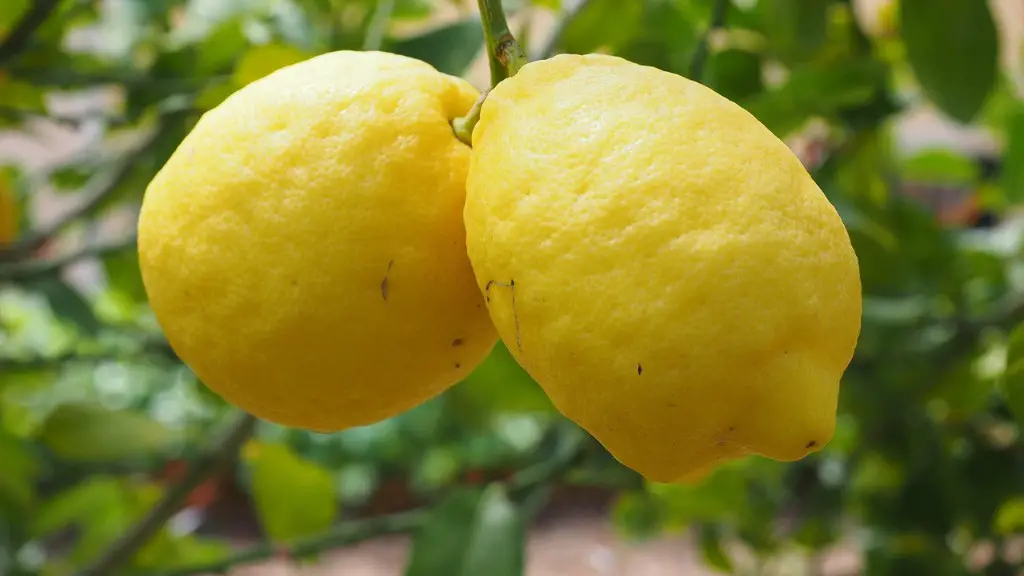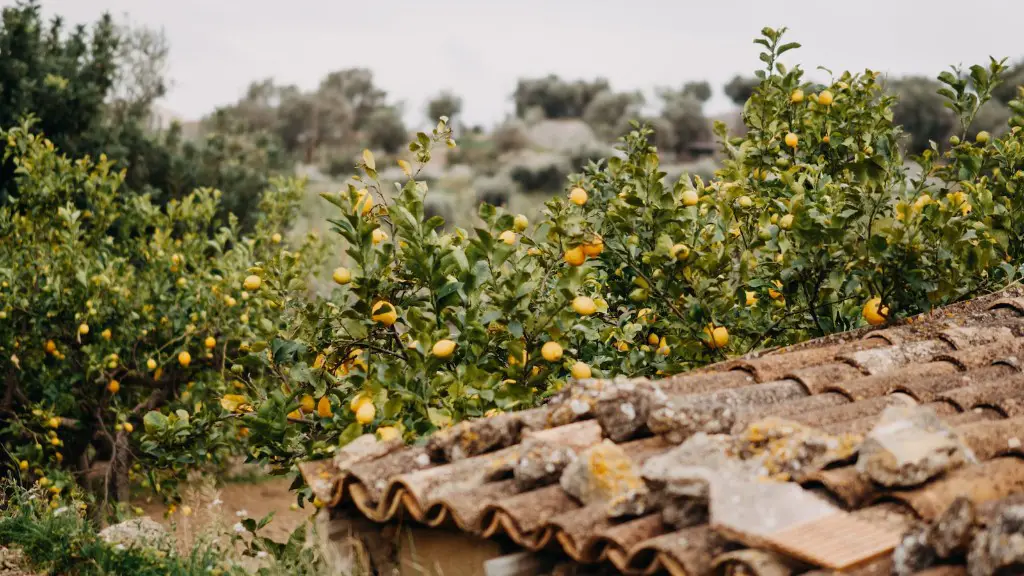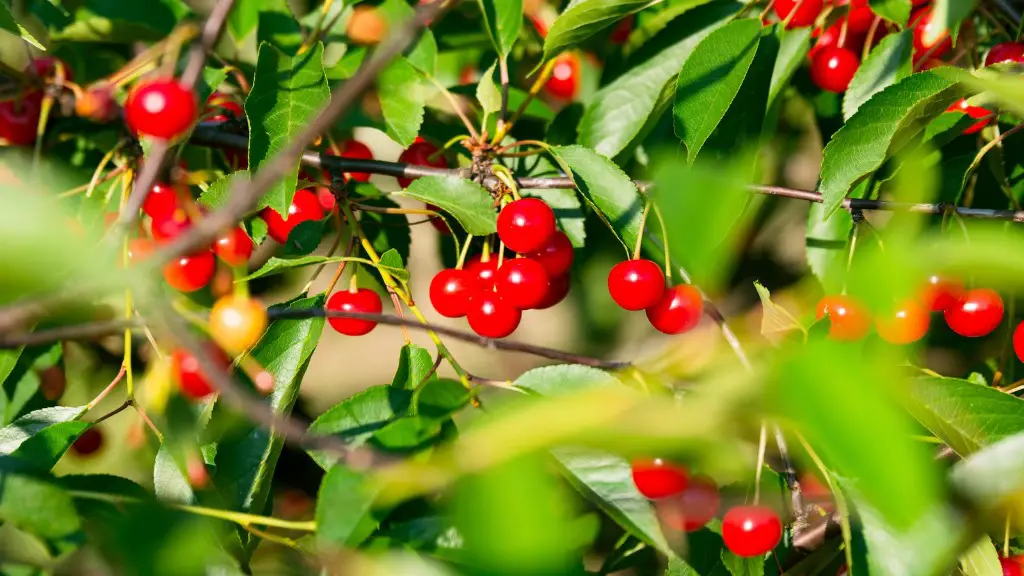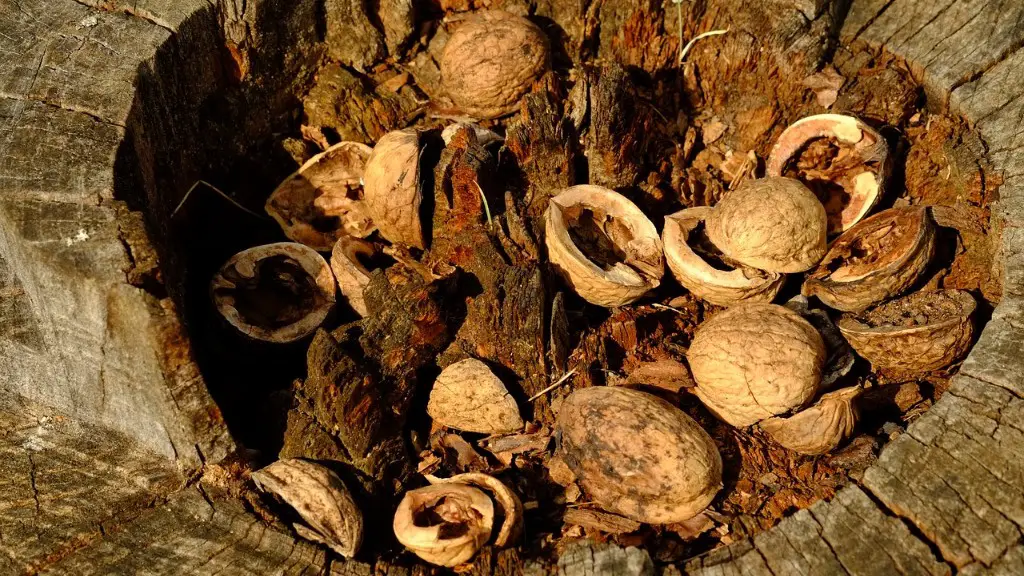Caring for a eureka lemon tree doesn’t have to be a daunting task. With a bit of knowledge, skill and care, anyone can become a successful citrus tree grower. Here are some tips on how to care for your eureka lemon tree:
1. Watering your lemon tree is key to its survival. You should ensure it receives around 1 to 1.5 inches of water per week and make sure the soil is moist but not soggy. Water in the morning or evening as watering in the middle of the day can lead to leaf burn.
2. Fertilize your lemon tree with a balanced citrus fertilizer once a month during the growing season, from spring to fall. Avoid fertilizing during winter, when the growth slows.
3. Prune your tree regularly to remove any old or dead branches and new shoots to encourage a fuller growth. It’s important to prune correctly, so it may be best to seek professional advice. When pruning, be sure to wear gloves, as the eureka lemon tree has sharp thorns.
4. Prune branches that are developing fruits to ensure that energy is being evenly dispersed throughout the tree and promoting a healthy production yield. Don’t harvest lemons until they are fully ripe, which is typically in late summer or early fall.
5. Monitor citrus leaf miner activity. Citrus leaf miner is a damaging pest that can damage leaves, stunt growth and attract sooty mold. If present, treat the tree with the appropriate pesticide product.
6. The eureka lemon tree is susceptible to fungal diseases such as brown rot, leaf spot and scab. The best way to prevent these diseases is to provide well-drained soil, proper watering and good air circulation around the tree.
7. Make sure to place your lemon tree in a spot that receives as much sunlight as possible. The more direct sun the better; eight to 10 hours a day is ideal. If it’s not receiving enough light, the leaves may yellow and it won’t produce as many fruits.
Fertilizing a Eureka Lemon Tree
When it comes to fertilizing a lemon tree, it is important to pick the right fertilizer. The ideal fertilizer should be a slow-release, granular nitrogen fertilizer. This will provide the nutrients your tree needs throughout its growing season. You should also look for a product that has potassium and magnesium, both of which are essential for building a strong structural system to support your tree’s growth.
It is also important to follow the instructions on the products label. Over-fertilizing can actually cause nutrient deficiency, so it is important to avoid overdoing it. It is best to fertilize your tree in spring right before the new growth season begins and again in mid-summer.
When fertilizing, keep the fertilizer away from the trunk of the tree and the root zone. It is important to apply it evenly around the perimeter of the tree, the same distance away from the trunk. This will ensure that the fertilizer is properly absorbed.
Also, avoid fertilizing during winter as the root system of your tree is not actively growing and absorbing nutrients during this time.
Insect Prevention for Eureka Lemon Tree
Preventing insects from infecting your lemon tree is a crucial step in healthy growth and production. One of the most common insect pests of the eureka lemon is the citrus mealybug. These pesky little bugs are attracted to the warmth and humidity found around the roots of your tree, creating prolific infestations if left unchecked.
It is important to look for and treat any suspected mealybug infestations before it is too late. If left untreated, mealybugs can cause damage to the bark, leaves, and fruits of your tree, leading to stunted growth and decreased fruit production. The best way to prevent an infestation is to regularly monitor your tree and if any signs of mealybugs are present, treat with an appropriate insecticide product.
In addition, it is important to maintain good sanitation around your tree. This means keeping any weeds or grass trimmed away, and discarded fallen leaves and fruits removed. This will help minimize the amount of insects, pests and other diseases that can harm your tree.
Pruning Your Eureka Lemon Tree
Pruning is an important part of caring for your lemon tree. Pruning helps to promote new growth and removes any dead or damaged branches that can reduce your trees productivity. Pruning should be done in late winter, during the dormant season, as this is when the tree is undergoing the least amount of stress.
When pruning, it is important to use the proper tools and techniques. Pruning shears should be sharp and made for the specific branch size you are pruning. It is also important to maintain the correct pruning angle and direction when creating cuts, as this will help the tree heal faster.
When pruning, make sure to remove branches in their entirety and not just the tips. This includes not removing too much foliage that could alter the shape of the tree and reduce fruit and flower formation. When removing living branches, always leave a stub attached and make sure not to damage any neighbouring branches or the trunk, as this can negatively affect the health and growth of your tree.
Harvesting and Storing Your Eureka Lemons
Harvesting your lemons at the right time is important for the best flavour and texture. Typically, eureka lemons are ripe from late summer until early fall. When harvesting, make sure to twist the lemons gently, as this helps to remove them without damaging the branch.
Once harvested, it is important to use your lemons quickly as they can quickly spoil in a few days. To extend the shelf-life of your lemons, make sure to keep them in a cool, dry place and away from any direct sunlight.
If you have too many lemons for immediate use, one of the best ways to store them is in the freezer. All you have to do is wash the lemons, dry them off, and store them in an airtight container or bag. Lemons keep in the freezer for up to 6 months so you can enjoy the bright taste of eureka lemons all year round.
Protecting Your Eureka Lemon Tree from Extreme Temperatures
Depending on where you live, you may experience extreme temperatures during certain times of the year. To protect your eureka lemon tree, it is important to keep its surroundings warm during cold winter months and cool during hot summer months.
During winter, it is important to cover the soil around your tree with a thick layer of mulch. This will help keep the warm around the roots and prevent freezing. Also make sure to keep any surrounding plants well groomed, as they can help provide an additional layer of insulation.
During summer, it is important to provide extra water to your tree to make sure the roots have plenty of moisture. This will help keep the tree hydrated and prevent wilting. It is also important to periodically spray the leaves with a water hose to help cool the tree down. Additionally, you can place a canopy or umbrella around your tree to provide shade and cool air circulation.
Disease Prevention for Your Eureka Lemon Tree
Diseases can be damaging to any citrus tree and the eureka lemon tree is no exception. The three main diseases that affect this variety are brown rot, leaf spot and scab.
The best way to prevent these diseases is to practice good sanitation. This means cleaning up and removing fallen leaves, fruits and debris as soon as possible, as it can easily harbor disease. Additionally, make sure to provide superior drainage to prevent water buildup around the bark and roots.
It is also imperative to regularly monitor your tree for any suspicious spots or lesions. If any of these signs appear, it is important to take immediate action and treat the tree with the appropriate pesticide or fungicide product. Not treating a disease quickly can cause it to quickly spread and cause even more damage to your tree.




